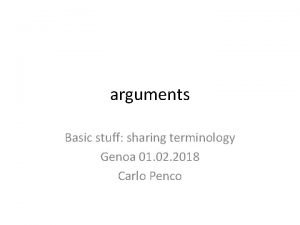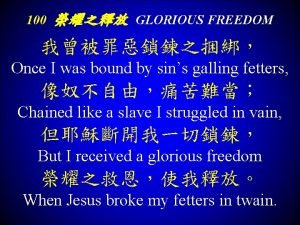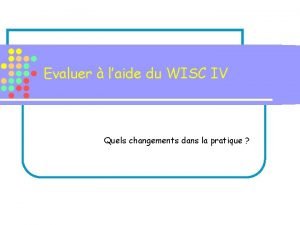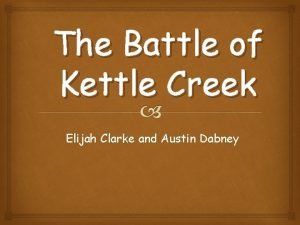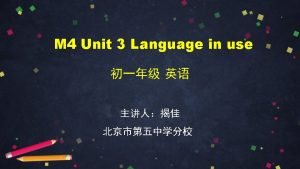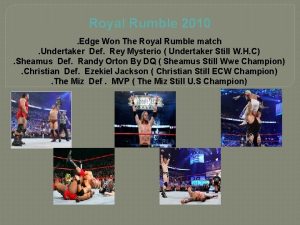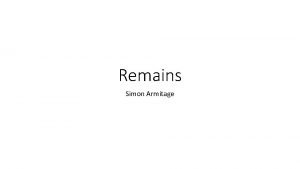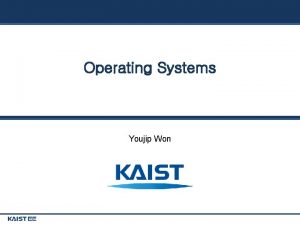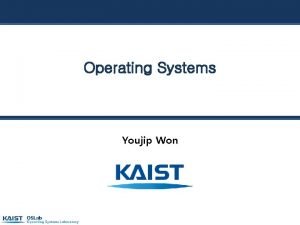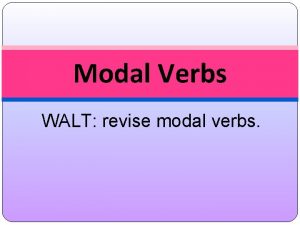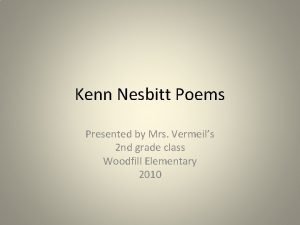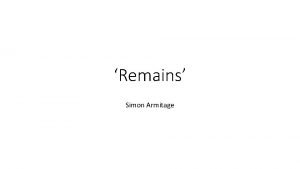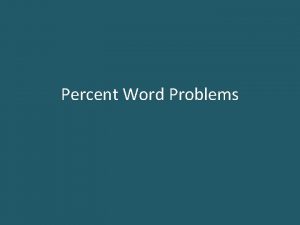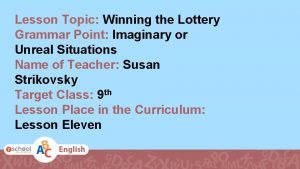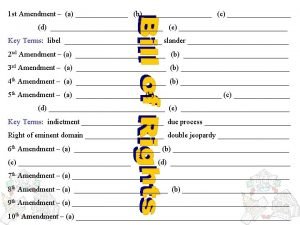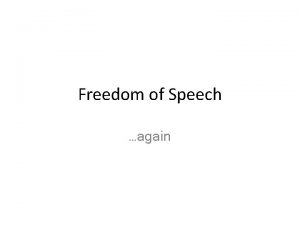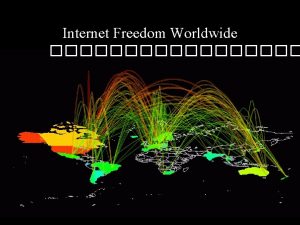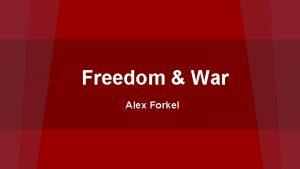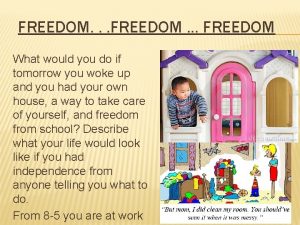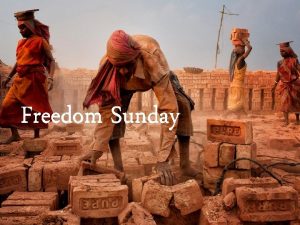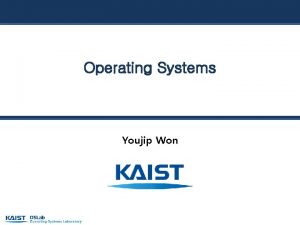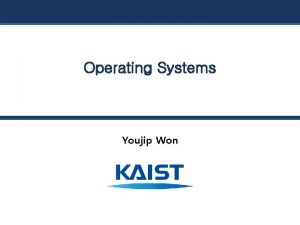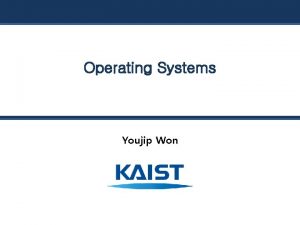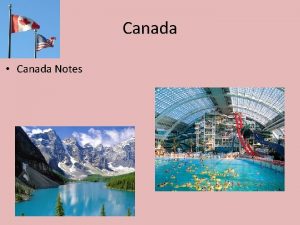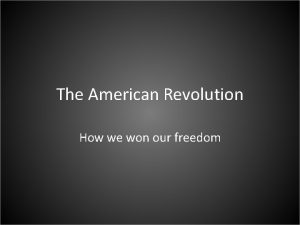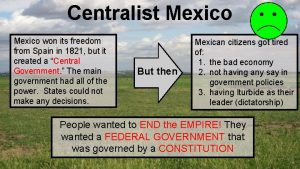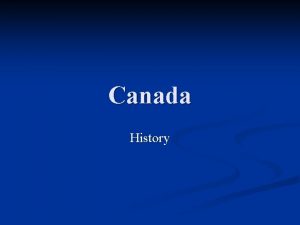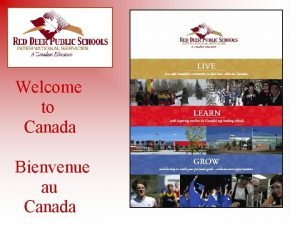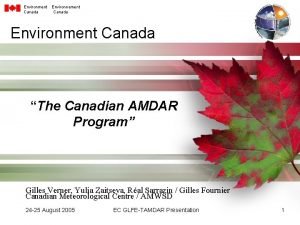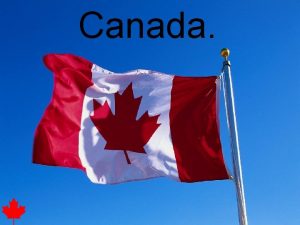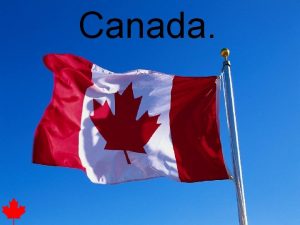History of Canada Notes How Canada Won Freedom




















- Slides: 20

History of Canada Notes How Canada Won Freedom

Canada Remember that both France and Britain settled in Canada. n Each country set down roots that are still evident today. n Let’s turn now to the War of 1812……………. n

War of 1812 French and British worked together against the US who tried to invade Canada n War resulted in a draw, but it defined the USCanadian border & increased a sense of Canadian nationalism n n Both French Canadians & English Canadians joined to protect their land—they were more united than ever before

After the War of 1812 French Canadians & British Canadians realized that they hated being under British rule n They thought that Great Britain was too far away to understand their economic & political needs n

Province of Canada n 1837—Canadians began to rebel against British control. They wanted self rule. Britain sent a government reformer to examine the Canadian problem n Established Upper Canada (Ontario) and Lower Canada (Quebec) n Those who were loyal to Great Britain=Ontario n The French settled in Quebec. The French are allowed to practice their language and religion. n

British North America Act (1867) n n 1860 s—Canadian leaders discussed the confederation of all British North American colonies 1867 -British North America Act: created a federation union of Canada Joined four colonies (Quebec, Ontario, New Brunswick, & Nova Scotia) n 4 colonies became Provinces joined by a unifying constitution - Britain accepted the agreement because they were glad to be rid of the responsibility of protecting the colonies (expensive) n


Results of the British North America Act n Allowed each region to sell goods more easily to one another Improved trade helped the economy n Soon there was enough money to build a railroad across the country n n Transcontinental Railroad was built in 1886 & people could now easily travel from the Atlantic Ocean to Pacific Ocean


Expanding Canada When Canada became a confederation in 1867, there were only 4 provinces n Leaders desired to expand the new country from the Atlantic to the Pacific n Bought land from the Hudson’s Bay Company n Thought the purchase would be a simple process, but problems occurred with the native peoples n

Expanding Canada n Eventually the First Nations (Inuit) agreed to relocate to reservations (now Nunavut) n n Transcontinental Railroad was built on this land Soon, 3 new provinces & 1 territory were created: Manitoba, British Columbia, Prince Edward Island, and the Northwest Territories

Results of the Railroad: Increased shipment of goods across the country n Increased travel from coast to coast n Created new provinces & territories n Increased Canadian nationalism n n Before the railroad, most people only thought of themselves as belonging to their province; after they felt as if they were part of one country

Transcontinental Railroad

Yukon n n GOLD was discovered along the western coast of Canada in 1896 Canada’s government created Yukon territory in 1898 to meet the needs of the area’s growing population


Canada & WWI n Canada still had close ties with Britain & felt they should contribute in the fight against Germany n n Sent military forces, raw materials, and food to Europe Canada’s contribution changed the way the world viewed it Canada was now a union that was able to compete with world powers n WWI increased Canadian nationalism n

1931 n Canada was granted partial separation from England. Canada could make decisions that England did not have to approve. n Canada remained a member of the British Commonwealth because they still considered Britain’s monarch to be their ceremonial head of state.

1982 The Canada Act n Canada asked for and received complete freedom from England. n Independence gained without bloodshed. n Remains a part of the British Commonwealth.

Nunavut (1999) n In the 1970 s, Inuit wanted to create a territory called Nunavut because: Wanted their own territory so that they could start making decisions for themselves. They needed their own government. n Wanted control of their land—for many years Canada had used the resources of the Arctic without asking the Inuit n Inuit still live the same way that their ancestors did—they use traditional methods for survival n

 Positive freedom negative freedom
Positive freedom negative freedom Glorious freedom wonderful freedom
Glorious freedom wonderful freedom Cube wisc
Cube wisc Will may and might for predictions
Will may and might for predictions Easter says you can put truth in a grave
Easter says you can put truth in a grave If+past perfect
If+past perfect Who won the battle of kettle creek
Who won the battle of kettle creek There won't be any schools in the future
There won't be any schools in the future Who won the royal rumble 2010
Who won the royal rumble 2010 Remains poem
Remains poem Youjip
Youjip Youjipp
Youjipp Is won't a modal verb
Is won't a modal verb Poem for grade 4
Poem for grade 4 Why is tokchae a prisoner
Why is tokchae a prisoner Battle of coleto creek summary
Battle of coleto creek summary Remains poem armitage
Remains poem armitage A baseball pitcher won 80 percent
A baseball pitcher won 80 percent Ram divided 15 pennies among four small bags
Ram divided 15 pennies among four small bags Examples of aside in macbeth
Examples of aside in macbeth If i won the lottery, i would grammar
If i won the lottery, i would grammar
